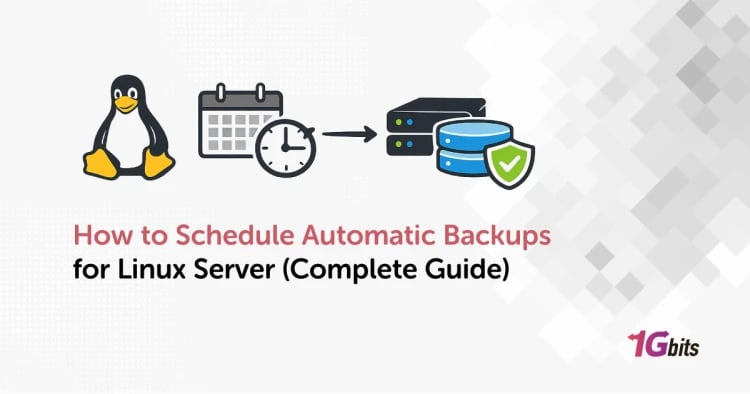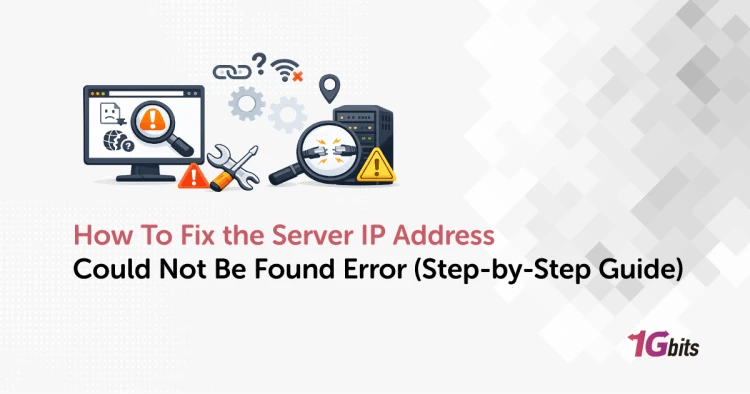Choosing between managed vs unmanaged dedicated servers is one of the most important hosting decisions a business can make. Whether you’re a startup, SaaS provider, e-commerce owner, or IT decision-maker, knowing how these dedicated server management options differ will directly affect your security, performance, operating costs, and workload.
If you’re new to dedicated hosting and want a quick refresher on what a server actually is, start with our guide on What is a Dedicated Server If you’re already familiar but unsure which setup to pick, this guide will walk you through every angle — including managed dedicated server benefits, unmanaged server risks, and a full dedicated server cost comparison so you can choose with confidence.
Quick Comparison: Managed vs Unmanaged Dedicated Servers
Before diving into technical details, here’s a clear comparison table to show how responsibilities, control, and pricing differ between both dedicated server management options:
|
Feature |
Managed Dedicated Server |
Unmanaged Dedicated Server |
|
Management Responsibility |
Hosting provider handles setup, maintenance, monitoring, backups, and updates |
User is fully responsible for all server setup, configuration, and troubleshooting |
|
Ideal User |
Businesses without in-house IT or those who prefer outsourcing |
Developers, sysadmins, or teams comfortable managing Linux/Windows servers |
|
Security Handling |
Provider includes firewalls, patching, malware protection |
User must install and maintain all security protocols manually |
|
Control & Customization |
Limited to provider-approved configurations |
Full control over OS, software, and system settings |
|
Support Access |
24/7 managed support included |
Support limited to hardware/network only |
|
Pricing |
Higher due to included services |
Lower monthly cost but higher time investment |
|
Risk Level |
Low — provider prevents issues proactively |
Higher — misconfigurations or delays can lead to downtime and breaches |
Right away, you can see the trade-offs: convenience vs full control, cost vs responsibility.
But which model is actually right for your business? To answer that, we need to break down each option.
What Is a Managed Dedicated Server?
A managed dedicated server is a fully maintained hosting solution where the provider handles all key operational tasks — from server setup and monitoring to firewall configuration and emergency response. You get the performance of a dedicated machine without touching command lines or dealing with service failures.
Key Managed Dedicated Server Benefits
When comparing managed vs unmanaged dedicated servers, the biggest advantages of managed hosting include:
-
✅ Hands-off maintenance — OS updates, security patches, and performance tuning are automated.
-
✅ 24/7 technical support for outages or configuration issues.
-
✅ Built-in security protections, including intrusion prevention, firewalls, and regular vulnerability scans.
-
✅ Proactive monitoring, ensuring downtime is prevented rather than reacted to.
If you want to skip the hassle of server maintenance entirely, explore our managed dedicated server plans to get instant access to fully supported hosting.
What Is an Unmanaged Dedicated Server?
An unmanaged dedicated server gives you raw power — but with full responsibility. The hosting provider delivers the hardware, networking, and data center environment, but everything else is in your hands.
Common Responsibilities on an Unmanaged Server:
-
Installing and configuring the operating system (Linux, Windows, etc.)
-
Applying all software and security updates
-
Managing firewalls and intrusion protection
-
Setting up backups and recovery systems
-
Troubleshooting errors, crashes, or performance drops
This approach is perfect for developers or system administrators who prefer full autonomy. If you love tweaking configurations and building things from scratch, check out our unmanaged dedicated server options — ideal for Linux power users and DevOps teams.
Dedicated Server Cost Comparison: Managed vs Unmanaged Pricing
Cost is one of the most important factors in choosing between managed vs unmanaged dedicated servers — and your decision shouldn’t only be based on monthly price. You need to understand the real operating cost, including time spent managing issues.
|
Server Type |
Typical Monthly Price |
Additional Hidden Costs |
|
Managed Dedicated Server |
$120 - $400+ depending on resources and service level |
No major hidden costs — provider handles everything |
|
Unmanaged Dedicated Server |
$70 - $200 |
DIY labor, third-party software licenses, possible security breaches, downtime recovery |
So even though unmanaged hosting appears cheaper, it can quickly become more expensive if your team isn’t equipped to troubleshoot issues fast. That’s why the unmanaged server risks must be seriously considered before choosing this path.
Who Should Choose Managed Dedicated Servers?
A managed setup is ideal if:
-
You don’t have a full-time IT administrator.
-
Your business depends heavily on uptime and security.
-
You’d rather focus on growth, not sysadmin tasks.
-
You run e-commerce, SaaS, finance platforms, or mission-critical applications.
Imagine staying focused on customers and strategy while experts silently maintain your infrastructure in the background — that’s the core advantage of managed hosting.
Before you decide, you might also want to read How to Choose a Dedicated Server for hardware and performance considerations beyond just management preferences.
Typical Tasks Handled by Managed Server Providers
To better understand the value of managed hosting, here’s a breakdown of what providers typically handle for you. These services eliminate manual effort and reduce operational risk.
|
Managed Service Task |
What It Means |
Time Saved (Approx.) |
|
OS & Software Updates |
Keeping Linux/Windows systems patched and stable |
3–5 hrs/month |
|
Security Monitoring |
Real-time scanning for intrusions and malware |
24/7 coverage |
|
Backup Management |
Scheduled full & incremental backups with recovery options |
2–3 hrs/week |
|
Performance Optimization |
CPU, RAM, and disk tuning based on workload |
1–2 hrs/week |
|
Uptime Monitoring |
Detecting outages before they cause downtime |
Instant response |
|
Emergency Support |
Provider resolves server crashes or failures |
Saves hours of panic |
When comparing managed vs unmanaged dedicated servers, this task list makes it clear: with a managed setup, businesses don’t just save money — they save time, stress, and potential revenue loss.
Risks and Responsibilities with Unmanaged Servers
Unmanaged hosting gives you complete freedom — but that freedom comes with unmanaged server risks that must be taken seriously:
-
❌ Misconfigurations can cause downtime — a single firewall mistake can lock you out.
-
❌ Security breaches are your responsibility — no one will alert you of vulnerabilities.
-
❌ Hardware is supported, but software is not — if your web server crashes, you fix it.
-
❌ Backup failures go unnoticed — until disaster strikes.
-
❌ Compliance requirements (GDPR, PCI, HIPAA) must be handled manually.
If you’re an experienced system administrator or DevOps engineer, these risks may be manageable. But if you're unsure how to handle Linux permissions, SSL certificates, kernel updates, or Apache/Nginx tuning — managed hosting is the safer long-term choice.
Real-World Use Cases: Which Setup Fits Your Situation?
When deciding between managed vs unmanaged dedicated servers, different business types benefit from each setup in unique ways:
-
Small E-commerce Stores – Managed dedicated servers are ideal because they handle updates, security, and backups, letting you focus on sales and customer experience.
-
SaaS & Web App Startups – Managed or hybrid servers ensure scalability, performance optimization, and security support as traffic grows.
-
Game Server Hosting – Unmanaged dedicated servers provide full control for custom configurations, mods, and performance tuning.
-
AI / GPU-Intensive Projects – Unmanaged servers allow fine-tuned resource allocation and high-performance optimization.
-
Corporate ERP / Financial Systems – Managed servers offer high uptime, compliance, and professional support for mission-critical operations.
-
Development & Testing Labs – Unmanaged servers provide flexibility for experiments, testing, and sandbox environments without restrictions.
If your infrastructure supports customers or revenue-critical operations, a managed solution provides stability and peace of mind. If your focus is experimentation, customization, or internal projects, unmanaged servers give you full control and flexibility.##
How to Decide: Managed vs Unmanaged Checklist
Ask yourself the following before making your final choice:
✅ Do you or your team have Linux/Windows server administration experience?
✅ Can you configure firewalls, backups, DNS, SSL, and monitoring tools manually?
✅ If your server goes down at 3 AM, do you have someone to respond immediately?
✅ Is security and uptime more valuable than full customization?
If you answered NO to most of these — go with a managed dedicated server.
If you answered YES with confidence — an unmanaged dedicated server could be perfect for you.
Conclusion: Which One Should You Choose?
The managed vs unmanaged dedicated servers decision comes down to one question:
👉 Do you want to focus on your business — or on your server?
- Choose managed if you value uptime, support, and peace of mind.
- Choose unmanaged if you prefer control, customization, and hands-on system tuning.
Still unsure? Start by reading How to Choose a Dedicated Server for hardware selection tips — then browse our managed dedicated server and unmanaged dedicated server plans to compare real pricing.
Whichever path you choose, 1Gbits gives you enterprise-grade infrastructure, fast deployment, and flexible upgrade options — so you can scale on your terms.
![Managed vs Unmanaged Dedicated Servers ⚖️ [Pros & Cons] Managed vs Unmanaged Dedicated Servers ⚖️ [Pros & Cons]](
https://1gbits.com/cdn-cgi/image/width=827,quality=80,format=auto/https://s3.1gbits.com/blog/2024/10/managed-vs-unmanaged-dedicated-1200xAuto.webp
)





![What Is Cold Data Storage? ❄️ [2026 Guide] What Is Cold Data Storage? ❄️ [2026 Guide]](https://1gbits.com/cdn-cgi/image//https://s3.1gbits.com/blog/2026/02/what-is-cold-data-storage-750xAuto.webp)


